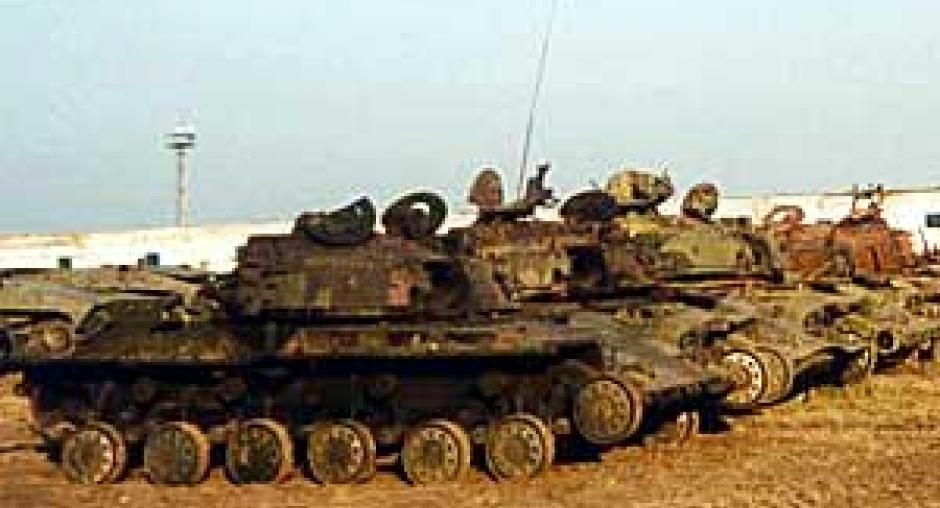Newsroom
Collective security and sustainable peace ultimate goal of disarmament, concludes OSCE Paris seminar
PARIS 28 March 2002

Arms control is high on the OSCE's agenda. (OSCE) Photo details
PARIS, 28 March 2002 - The socio-economic impact generated by disarmament and reductions in military expenditures were on top of the agenda of a two-day seminar, organized by the OSCE and the French Ministry of Foreign Affairs held on 25 and 26 March in Paris.
"This seminar has produced valuable feedback and new ideas regarding the disarmament process", said João Bernardo Weinstein at the conclusion of the seminar on behalf of the OSCE's Portuguese Chairmanship.
More than 100 participants from 30 OSCE participating States, non-governmental organizations and the academic world gathered in the French capital to debate on whether the overall economic impact of disarmament has been positive or negative. The seminar participants concluded that, despite medium-term social and economic difficulties associated with the conversion of defence industries, collective security and sustainable peace were the ultimate goal of disarmament.
The participants also analyzed, in three different round tables, the issue of "peace dividends", such as increased development aid, and the macroeconomic spin-off from reductions in military expenditures and the resulting benefits for our society.
"The disarmament process requires many resources and experience with the pressure of the free market, which facilitates the conversion of military industries", said Marc Baltes, the Acting Co-ordinator of OSCE Economic and Environmental Activities. "Reducing the scope of capital flights may provide more resources to the transition countries", added Daniel Linotte, OSCE Senior Economic Adviser. "In some countries, the lack of control over regions does not facilitate the disarmament process. As a result, that may further contribute to insecurity".
"This seminar has produced valuable feedback and new ideas regarding the disarmament process", said João Bernardo Weinstein at the conclusion of the seminar on behalf of the OSCE's Portuguese Chairmanship.
More than 100 participants from 30 OSCE participating States, non-governmental organizations and the academic world gathered in the French capital to debate on whether the overall economic impact of disarmament has been positive or negative. The seminar participants concluded that, despite medium-term social and economic difficulties associated with the conversion of defence industries, collective security and sustainable peace were the ultimate goal of disarmament.
The participants also analyzed, in three different round tables, the issue of "peace dividends", such as increased development aid, and the macroeconomic spin-off from reductions in military expenditures and the resulting benefits for our society.
"The disarmament process requires many resources and experience with the pressure of the free market, which facilitates the conversion of military industries", said Marc Baltes, the Acting Co-ordinator of OSCE Economic and Environmental Activities. "Reducing the scope of capital flights may provide more resources to the transition countries", added Daniel Linotte, OSCE Senior Economic Adviser. "In some countries, the lack of control over regions does not facilitate the disarmament process. As a result, that may further contribute to insecurity".
